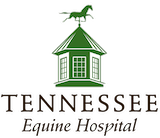What's involved in an equine acupuncture appointment?
When I see a horse for acupuncture, the first thing I like to do is talk to the owner about any issues that horse may be having, any problems they've noticed while riding, or any medical issues that the horse has had in the past. After that, I'll perform a diagnostic acupuncture exam on the horse. And what that involves is palpation of acupuncture meridians on the horse's body and looking for any reactive points along those meridians.
Once the reactive points are identified, those points might be points that need to be treated themselves, or they might give us information about what may be causing issues elsewhere in the horse. For example, there are several points on the horse's neck, shoulder, and chest that indicate that the horse is experiencing pain and its front feet. There's a lot of information that we can get from that exam, and it also helps identify areas of tight muscles or myofascial restriction.
Once all these treatment areas have been identified, then the needles are placed in the horse. Usually, we start with some points near the horse's neck and shoulder to help them get used to the sensation of needles and then place them in the other locations indicated by the diagnostic exam.
Once I place the needles, then I will typically use e-stim, which is an electric stimulation into the needles that provides additional pain relief and stimulation of the nerves involved.
Dr. Emily Guest
Tennessee Equine Hospital
How old does your horse need to be to receive acupuncture?
Any age horse, including foals, can receive acupuncture.
What are some conditions that would benefit your horse by receiving acupuncture treatments?
Acupuncture is excellent for several things. One of the things that it works well for is pain control. Acupuncture, especially electric acupuncture, has been shown to cause the body to release hormones and opioids that reduce pain in that area. So pain associated with training muscle soreness in the horse's back, neck, or hindquarters, or pain associated with arthritis, laminitis, or old age, all respond well to acupuncture.
Acupuncture is also excellent for nerve problems. So if a horse has some sort of injury-causing facial nerve paralysis or shoulder Sweeney or something like that, then acupuncture can be a beneficial modality.
Another example that acupuncture can be used for is intestinal problems such as mild colics. Some colics require surgery or other treatments to be resolved, but some gas or spasmodic colics can be resolved with the help of acupuncture, which stimulates increased GI motility.
How can horse acupuncture be integrated with Western medicine?
Acupuncture should always be a piece of the treatment for any horse. There are some things that acupuncture cannot effectively treat, and thus, we should use acupuncture in conjunction with traditional Western medicine techniques, not in place of. Depending on what's wrong with the horse, that might include a traditional lameness exam, diagnostic imaging, blood work, or any other number of Western treatments.
How will a veterinarian determine if acupuncture is right for my horse?
Your veterinarian will perform an exam, physical exam, or lameness exam on your horse and identify issues that may respond well to acupuncture. For example, if your veterinarian identifies back soreness in your horse or other problems such as neck soreness or nerve issues, they might then identify acupuncture as a good treatment option.
If you still have other questions and you'd like to reach out to us, you can call us directly at (615) 591-1232, you can email us, or you can reach out on Facebook. But please do reach out, and we'll get back to you as soon as we can.
